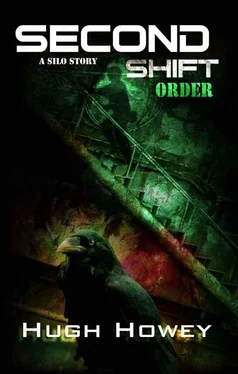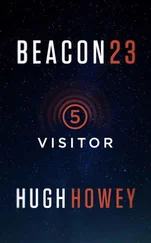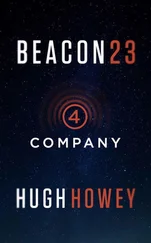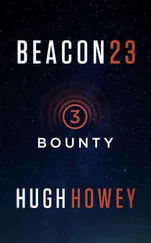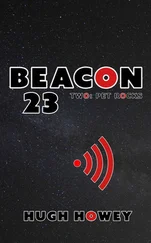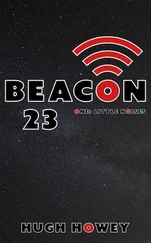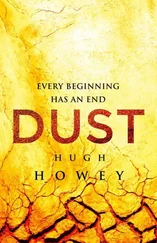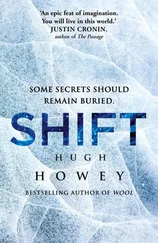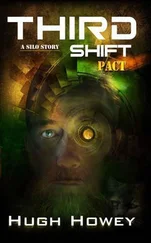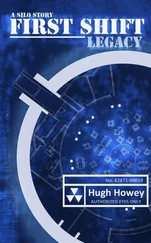Ignore the blood, he told himself. The blood wasn’t a clue. It had come after. There were several splatters in a wide space left in the notes. Donald had been studying the senseless. He had been looking for something that wasn’t there. He may as well have been staring off into space.
Space. Donald set his fork down and grabbed the other report. Once you ignored the large spots of blood, there was a hole, a vacancy where nothing had been written. This was what he should’ve been focused on. Not what was there, but what wasn’t.
He checked the other report—the corresponding location of that blank space—to see what was written there. He was grasping at air, he knew. Sure enough, when he found the right spot, his excitement vanished. It was the paragraph that didn’t belong, the one about the young inductee whose great grandmother remembered the old times. It was nothing.
Unless—
Donald sat up straight. Thurman had said the report wasn’t about its contents at all. But maybe they had been looking at the wrong contents . He took the two reports and placed them on top of each other. Anna was telling Thurman about her progress with the jamming of the radio towers, that she would be done soon. Thurman was saying that they could all get off shift in the next few days, get the schedule back in order. Donald held the overlapping reports up to the lights. Thurman looked on curiously.
“He wrote around something,” Donald muttered. “Not over something.”
He met Thurman’s gaze and smiled. “You were wrong.” The two pieces of paper trembled in his hands. “There is something here. He wasn’t interested in me at all.”
Anna set down her utensils and leaned over to have a look.
“If I had the original, I would’ve seen it straight away.” He pointed to the space in the notes, then slid the top page away and tapped his finger on the one paragraph that didn’t belong. The one that had nothing to do with Silo 12 at all.
“Here’s why your resets don’t work,” he said. Anna grabbed the bottom report and read about the shadow Donald had inducted, the one whose great-grandmother remembered the old days, the one who had asked him a question about whether those stories were true.
“Someone in Silo 18 remembers,” Donald said with confidence. “Maybe a bunch of people do, passing the knowledge down in secret from generation to generation. Or they’re immune like me. They remember.”
Thurman took a sip of his water. He set down the glass and glanced from his daughter to Donald. “More reason to pull the plug,” he said.
“No,” Donald told him. “No. That’s not what Victor thought.” He tapped the dead man’s notes. “He wanted to find the one who remembers, but he didn’t mean me.” He turned to Anna. “I don’t think he wanted me up at all. This isn’t about me.”
Anna looked up at her father, a puzzled expression on her face. She turned to Donald. “Are you saying there’s another way?”
“Yes.” He stood and paced behind the chairs, stepping over the wires that snaked across the tiles. “We need to call 18 and ask the head there if anyone fits this profile, someone or some group sowing discord, maybe talking about the world we—” He stopped himself from saying destroyed .
“Okay,” Anna said, nodding her head. “Okay. Let’s say they do know. Let’s say we find these people over there like you. What then?”
He stopped his pacing. This was the part he hadn’t considered. He found Thurman studying him, the old man’s lips pursed.
“We find these people—” Donald said.
And he knew. He knew Thurman had been right. There was that story of a medic wounded, there was Donald’s frustration with what had been done to the world. He imagined what it might take to save these people in this distant silo, these welders and shopkeeps and metalsmiths and their young shadows. He remembered being the one on a previous shift to press that button, to kill in order to save.
And he knew he would do it again.
Hush, my child, too late to cry
The skies are dark, the rivers dry
Our parents gave us lives to keep
Buried here beneath the deep
They sent us down below the dirt
They lied and said it wouldn't hurt
Their lies still shield us from our dread
Buried here beside our dead
We cannot leave, we must not cry
We'll show them that our cheeks are dry
Now sleep, my child, accept the dream
Buried here, unless you clean
— Mary Fonvielle, age 22
Mission’s throat itched and his eyes stung, the smoke growing heavier and the stench stronger as he approached Lower Dispatch. At least the pursuit from above seemed to have faltered, perhaps from the gap in the rails that had claimed a life.
Cam was gone, of that he felt certain. How many others? A twinge of guilt accompanied the sick thought that the fallen would have to be carried up to the farms in plastic bags. Someone would have to do that job, and it wouldn’t be a pretty one.
He shook this thought away as he got within a level of Dispatch. Tears streamed down his face and mixed with the sweat and grime of the long day’s descent. He bore bad news. A shower and clean clothes would do little to alleviate the weariness he felt, but there would be protection here, help in clearing up the confusion about the blast. He hurried down the last half flight and remembered, perhaps due to the rising ash that reminded him of a note he’d torn to confetti, the reason he’d been chasing after Cam in the first place.
Rodny. His friend was locked away in IT, and his plea for help had been lost in the din and confusion of the explosion.
The explosion. Cam. The package. The delivery .
Mission wobbled and clutched the railing for balance. He thought of the ridiculous fee for the delivery, a fee that perhaps was never meant to be paid. He gathered himself and hurried on, wondering what in the depths was going on, what kind of trouble his friend might be in, and how to help him. How, even, to get to him.
The air grew thick and it burned to breathe as he arrived at Dispatch. A small crowd huddled on the stairway. They peered across the landing and into the open doors of one-twenty-two. Mission coughed into his fist as he pushed his way through the gawkers. Had the wreckage from above landed here? Everything seemed intact. Two buckets lay on their sides near the door, and a gray fire hose snaked over the railing and trailed inside. A blanket of smoke clung to the ceiling; it trailed out and up the wall of the stairwell shaft like water from a giant faucet defying gravity.
Mission pulled his ‘chief up over his nose, confused. The smoke was coming from inside . He breathed in through his mouth, the fabric pressing against his lips and lessening the sting in his throat. Dark shapes moved inside the hallway. He unsnapped the strap that held his knife in place and crossed the threshold, keeping low to stay away from the smoke.
Eli, one of the senior dispatchers, met him in the hall. He had a basket of scorched paper in his hands, a mournful look on his face. The floors were everywhere wet and squished with the traffic from deeper inside. It was dark, but cones of light danced around like fretful things.
“Look what you’ve done,” Eli cried to Mission. “Look what you’ve done.”
Mission hurried past him and toward the flashlights. The smoke was thicker, the water on the floor deeper. Bits of pulp worth saving floated on the surface. He passed one of the dormitories, the sorting hall, the front offices.
Lily, an elder porter, ran by in slaps and spray, recognizable only at the last moment as the beam from her flashlight briefly lit her face. There was someone lying in the water, pressed up against the wall. As Mission approached and a passing light played over the form, he saw that they weren’t lying there at all. It was Hackett, one of the few dispatchers who treated the young shadows with respect and never seemed to take delight in their burdens. The glimpse Mission got revealed half a face recognizable, the other half a red blister. Deathdays. Lottery numbers flashed in Mission’s vision.
Читать дальше
